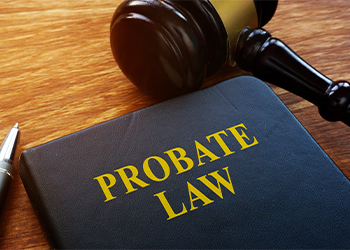How Long Does the Probate Process Take?
Oct. 24, 2024
 When someone passes away, their estate often goes through a legal process known as probate. This can be a difficult time for families who are already dealing with loss.
When someone passes away, their estate often goes through a legal process known as probate. This can be a difficult time for families who are already dealing with loss.
Attorney Blake P. Lipman explores how long the probate process takes, and how legal help can help you. With over two decades of experience in family law and estate planning, the Law Office of Blake P. Lipman serves Farmington Hills, Michigan, the Detroit Metropolitan Area, and the Tri-County Area: Oakland, Wayne, and Macomb.
Understanding Probate
Probate is a legal procedure used to validate a will and distribute a deceased person's assets. Many people find this process complex, especially when dealing with estate taxes and creditors. The primary purpose of probate is to ensure that the deceased's wishes are honored, and debts are paid.
In Michigan, probate can be necessary whether there is a will or not, and it involves several steps. Depending on the estate's complexity, this can take weeks or even years. Knowing what to expect can make the process less stressful and help families plan accordingly.
Factors Affecting Probate Duration
Several factors can influence how long probate takes. One key factor is the size and complexity of the estate. Larger estates with multiple assets often require more time to appraise and distribute.
Another factor is the accuracy of all documents involved. If a will is properly executed, probate tends to move faster. However, if a will is contested or missing, the process can slow significantly.
The presence of disputes among beneficiaries or creditors can extend the timeline. Disagreements about asset distribution often lead to court proceedings that prolong probate.
Average Probate Timeline
In Michigan, the typical probate process takes between seven months to a year. However, this can vary based on the specifics of the case. For uncontested estates, probate might wrap up in a few months. Disputed estates can take much longer.
The process begins with filing a petition to open probate with the probate court. Next, the court appoints a personal representative to manage the estate. This representative gathers and appraises assets, pays debts and taxes, and finally distributes the remaining assets to beneficiaries.
Steps in the Probate Process
After probate begins, each step follows a clear process to help resolve the estate.
Opening probate: This involves filing necessary documents with the probate court and notifying all interested parties. It sets the legal process in motion.
Appointing a personal representative: The court designates someone, often a family member or an attorney, to manage the estate.
Inventory and appraisal: The personal representative compiles a list of assets and has them appraised to determine their value.
Settling debts and taxes: The representative uses estate assets to pay off any debts and taxes.
Distribution of assets: Once all financial matters are resolved, the remaining assets are distributed according to the will, or state law if there is no will.
Probate Laws in Michigan
Michigan laws have specific procedures for probate.
Formal vs. informal probate: Michigan offers two types of probate processes: formal and informal. Informal probate is a more streamlined option, suitable for uncontested estates where all parties agree on the will's validity and asset distribution. Formal probate may be necessary for contested cases or when the will is unclear, involving more court oversight and procedures.
State inheritance tax: Michigan does not levy inheritance tax, which can simplify the probate process for beneficiaries. However, estate taxes may still apply, and the personal representative must ensure all tax obligations are fulfilled before distributing assets.
Creditor's claims: Michigan probate laws allow creditors to make claims against the estate for a specified period. The personal representative must notify creditors and resolve any outstanding debts before any distributions to beneficiaries can take place. Failure to settle these claims may result in future liability for beneficiaries if debts remain unpaid.
Common Probate Challenges
Probate can be fraught with challenges. One common issue is locating all the deceased's assets. Sometimes, assets are spread across various accounts and locations, making them difficult to track down.
Another challenge is dealing with creditors and outstanding debts. The personal representative must meticulously settle these to avoid legal complications.
Disputes among beneficiaries can also arise, especially if the will is ambiguous or contested. In such cases, legal intervention may be necessary to mediate and resolve conflicts.
Costs Associated with Probate
Probate can be costly, with fees varying based on the estate's complexity and size. Common expenses include court fees, appraiser fees, and attorney fees.
Some costs, like the personal representative's compensation, are determined by state law. Others depend on the services needed, such as hiring experts for challenging asset appraisals or legal counsel for contested wills.
Probate Attorney in Farmington Hills, Michigan
The Law Office of Blake P. Lipman combines compassion and professionalism in every case. With over twenty years of experience, Attorney Blake P. Lipman guides families through probate complexities with personalized attention and care. He values clear, timely communication so that clients benefit from his deep understanding of the process. If you're facing probate challenges or want a smooth process for your family in Farmington Hills, Michigan, Detroit Metropolitan Area, Tri-County Area: Oakland, Wayne, or Macomb, contact the Law Office of Blake P. Lipman for skilled guidance.
